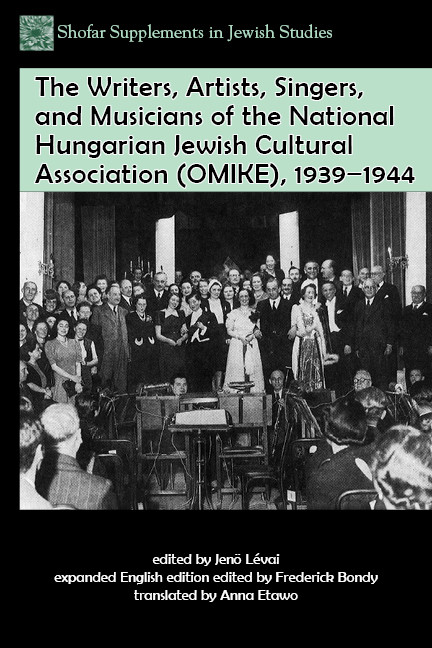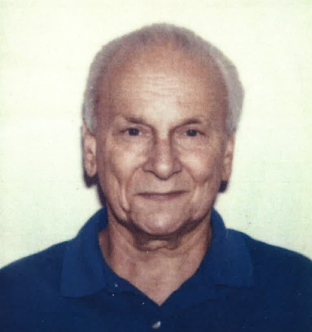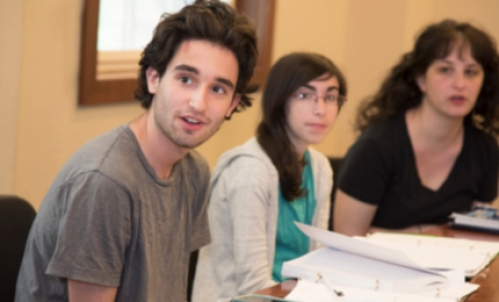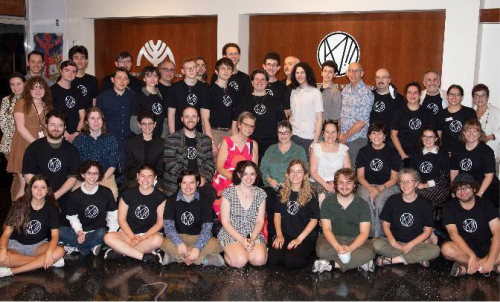The Writers, Artists, Singers and Musicians of the National Hungarian Jewish Cultural Association (OMIKE), 1939-1944

|
Ruth Gay Seminar in Jewish Studies
Inaugurated in 2008 thanks to a major gift from the family of Ruth Gay, the Ruth Gay Seminar in Jewish Studies was established in honor of Ruth Gay (1922-2006), the noted American Jewish historian and writer. This series is given by scholars who use the YIVO Archives and wish to share their research with the public. Admission: Free |
Presenter: Frederick Bondy, Editor
Moderator: Alex Weiser, YIVO Programs Manager
Historical Introduction: Professor Istvan Deak
Respondent: Professor Randolph Braham
In response to anti-Semitic laws passed in 1938 in Hungary, barring Jewish artists from practising their professions, Budapest’s Jewish community leaders organized an artistic group under the aegis of OMIKE Országos Magyar Izraelita Közművelődési Egyesület (Hungarian Jewish Education Association) to provide employment opportunities for Jewish actors, musicians, singers, composers, writers and artists. Carrying out its activities primarily in Goldmark Hall in Budapest, OMIKE organized at least one thousand performances by Jewish performers which took place between 1939 and 1944. These included plays, concerts, cabaret, ballet, operas, and operettas. The cultured Budapest Jewish community deeply appreciated these performances especially in view of the oppressive conditions of which prevailed in Hungary the time. There were also art and sculpture exhibitions held throughout this period.
Frederick Bondy’s expanded English edition is based on the original 1943 Hungarian language book written by Jeno Lévai. This new book by Bondy includes the history of the OMIKE and provides an overview of the numerous contributions of musicians and artists to Jewish cultural life during the Holocaust period in Hungary. Amply illustrated with photographs, the new additional chapters added by Frederick Bondy to the original 1943 book includes recollections and interviews by individual artists who share the circumstances which led them to join the OMIKE.
About the Participants
Presenter

Frederick Bondy graduated with a BS in chemical engineering from the City College of New York and an MS in chemical engineering from the University of Akron. He has more than 40 years of extensive experience in this field. His uncle, Istvan Bondy, was an actor and a member of the OMIKE. He is the author of a large number of articles and encyclopedia sections related to chemical engineering. He also wrote the biography István Bondy, Hungarian Actor (1905–1944), which is in the National Széchényi Library and in the Hungarian Theatre Museum and Institute, both in Budapest. Among his interests are world history (with an emphasis on Jewish and Holocaust History), philately, and marathon running. Bondy lives in New York City.
Historical Introduction
Born in Hungary, and trained at the University of Paris at the Sorbonne, Istvan Deak, Seth Low Professor Emeritus at Columbia University, obtained his doctorate in modern European history at Columbia History where he taught for over 30 years. The Director of Columbia’s Institute on East Central Europe between 1968 and 1979, Deak has written extensively on eastern and central European history and politics a well as on the Holocaust. His numerous publications include Weimar Germany's Left-wing Intellectuals (1968); and Essays on Hitler's Europe (2001). He edited and partly wrote, together with Jan T. Gross and Tony Judt, The Politics of Retribution in Europe: World War II and Its Aftermath (2000). His most recent work is Europe on Trial. The Story of Collaboration, Resistance, and Retribution during World War II (2015).
Respondent
Born in Rumania, Randolph Braham is Distinguished Professor Emeritus of Political Science at the Graduate Center of the City University of New York. He also is Director of the Rosenthal Institute for Holocaust Studies at the Graduate Center. A noted expert on the Holocaust in Hungary, Braham is the author or editor of over 60 books and co-author or contributor to 50 others. His publications include The Hungarian Jewish Catastrophe; A Selected and Annotated Bibliography [YIVO Institute for Jewish Research, New York, part of YIVO-Yad Vashem Documentation Series]; The Destruction of Hungarian Jewry: A Documentary Account; The Politics of Genocide: The Holocaust in Hungary.

